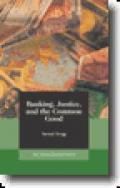


In 2010, voters in Oklahoma passed a legislatively-referred constitutional amendment that would prohibit state courts from using international law or Sharia law when making rulings. But yesterday, a federal judge ruled the amendment violated religious freedoms granted by the U.S. Constitution:
In finding the law in violation of the United States Constitution’s Establishment Clause, U.S. District Judge Vicki Miles-LaGrange issued a permanent injunction prohibiting the certification of the results of the state question that put the Sharia law ban into the state constitution.
“While the public has an interest in the will of the voters being carried out, the Court finds that the public has a more profound and long-term interest in upholding an individual’s constitutional rights,” the judge wrote.
You don’t have to be in favor of Sharia law to be appreciate this victory for religious freedom. By helping to push the idea that religious beliefs should be kept private, anti-sharia laws are a threat to all of our religious liberties. As legal scholar Robert K. Vischer explained last year in First Things:
Though popular with secularists and religious conservatives, anti-Sharia legislation does not defend against theocracy but calls into question our society’s mitments to meaningful religious liberty and meaningful access to the courts. mitments have been relied on by generations of Protestants, Catholics, Mormons, and Jews, and to try to remove them for Muslims both is unjust to Muslims and sets a dangerous precedent for other religious groups.
[. . .]
Before Christian and Jewish believers support such measures, they should consider the way these laws not only misunderstand the faith of their Muslim fellow citizens but threaten their own religious liberty. Muslim Americans who seek to use Sharia are not asking the American legal system to adopt Islamic rules of conduct, penal or otherwise. Muslims have introduced Sharia in court not in an attempt to establish a freestanding source of law binding on litigants but rather in recognition of the norms to which the litigants have already agreed to be bound.
American courts do this every day—it’s called contract law. Even the literature being pumped out by anti-Sharia organizations shows that their target is not the threat posed by the imposition of Sharia on American society but rather the threat posed by the introduction of Sharia according to the same criteria of admissibility applied by courts to other religious codes.
As Vischer adds, “the presumption that the deepest core values and convictions of religious Americans threaten the legal order by virtue of their source, without reference to their substance.” If we don’t want Canon law and biblical principles to be terms excluded from American court system, then we can’t let Sharia be excluded either.









